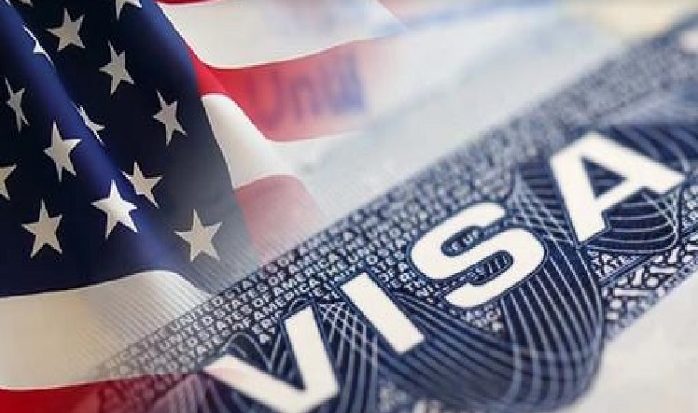About 8 a.m one Thursday morning early in the month, some residents and shop owners along Sadiku Street, Ilasamaja in Lagos, were seen running for their lives. Some traders who had displayed their wares quickly began packing thinking perhaps members of Kick Against Indiscipline (KAI), an environmental law enforcement unit of Lagos State, were on a raid to catch those contravening the weekly environmental sanitation for markets and shop owners.
But the reason for the race was not KAI. So why the near panic race? A convoy of six Police cars filled with Policemen armed with all manner and sizes of canes on display had invaded the street and nobody wanted to be on the wrong side of the men.
When eventually things calmed down, it was discovered that the Policemen were after motorcyclists or ‘ okada people’ as they are called in local parlance. They were on a mission to impound the ‘okadas.’
One passer-by, Okechukwu, drew a long hiss and said, “six Police cars to catch okada. When they are needed for a serious case you won’t find one of them.” He ended with another long hiss and continued on his way.
In 2012, former Governor Babatunde Fashola, banned okada from plying over 400 roads in Lagos. Through the Lagos State Road Traffic Bill signed into Law in August 2012, the governor banned okada, trycycle (keke), carts and wheel barrows from about 475 roads across the state.
Some of the reasons given for the ban on okada include the rate of accidents and deaths attributable to it and its use for criminal activities, among others.
However, shortly before the 2015 general elections, the ban or restriction was lifted and ever since then okada operators have had free passage on all roads in Lagos including the highways.
In fact, they are Kings on some highways, chief among them being the Mile 2 – Apapa highway for the simple reason of the permanent gridlock caused by bad roads and indiscriminate parking of tankers on the expressway, thereby making them more or less the only means of transportation to those who want to access Apapa from that axis.
They are also in large numbers on the Ijora – Apapa axis for the same reason of bad roads and ever permanent gridlocks.
From Mushin to Jakande Gate, down to Ikotun and Ejigbo, okada remains the preferred choice of movement also for reasons of bad roads and traffic. Lagosians have also been known to ‘bike’ it on other highways for the same obvious reasons.
There is no gainsaying the fact really that if you want to get around fast in Lagos, okada is your best bet and Lagos is a city of people in a hurry.
With the recent comments and actions of the Chairman of the State Task Force on Enforcement of Road Traffic Laws, Mr. Olayinka Egbeyemi, and his men though, all that may change.
Late last month, Mr. Egbeyemi told newsmen that his men were ready to commence full enforcement of the state laws especially as regards okada and indeed they have commenced.
The Next Edition sought to find out from officials of the Lagos State if the current action is a continuation of the 2012 ban and whether the okada operators and Police men have sufficiently been educated as to the roads off limits to the okada operators, but there was no response to our mails and calls.
We, however, spoke to a cross section of Lagosians including okada operators on their views on the ban and how it has affected them. We also tried to find out from the okada riders if government has educated them on the roads they are restricted from as this would protect them from being taken undue advantage of by the enforcement agencies.
READ ALSO: We’ll Transform Onikan, Marina To World-class Tourism Hub – Ambode
Musa plies his trade in Ikeja and to the best of his knowledge there has not been any concerted effort to enlighten okada operators on the roads off limits to them, but they know enough to stay away from major roads in Ikeja such as Awolowo Way, Alausa – Secretariat and Oba Akran. What informed their decisions to stay off such roads? “Police dey arrest okada for there. But Ambode don say make them allow us for the small small road for inside,” Musa told The Next Edition.
From Mile 2 going to Apapa in Lagos, Okada still hold sway even though being a highway one would expect that they shouldn’t be there.
Mr. Emeka has his office at Apapa and accesses it through Mile 2. He told The Next Edition that it would be near impossible to remove okada from there because it has become the easiest way to get into and move around in Apapa. “It is easy to say some things but not easy to do them. This is not the first time they are banning okada. We are watching but I can tell you the okada people are still there and they are making a hell of money. Now they charge as much as N500 per drop from Mile 2 to certain parts of Apapa,” he said.
But is he in support of okada being banned? “For what. If they ban okada how are people supposed to move about. Whether it’s ban or restriction, has government made alternative provisions?”
Mrs. Immaculata Nyong, said the ban was a welcome development. “The recent ban on okada is a welcome development. This is because okada is being used for different criminal activities, poses a lot of traffic menace on our roads and increases the gridlock on roads. However, the law may not be enforceable as the government has not provided alternatives.
The ban has affected me as I have to walk long distances on bad roads with traffic jam,” she said.
Mrs. Onyinye Okere, said this was a wrong time for such a policy. “It is really sad to think that government banned okada at this critical period when most of the roads are not motorable especially for those going to Apapa. Though it will reduce the risks involved as per accident and robbery attacks, it will increase the inconveniences associated with transportation.It will be difficult since the roads are bad.
The ban definitely has affected me for obvious reasons; traffic jam, convenience and mobility – ease of getting to proposed destination fast is restrained.”
For Mr. Tony Opara, “The ban on the use of okada is wrong headed. True, okada can be used by criminal elements but so are taxis, so should we ban taxis, no. Law enforcement should up their game and come up with a policing strategy to engage criminals who use okada. There are families depending on the income that comes from okada business. A fall out of the ban could be creation of more criminal elements given that an idle mind and hand are the Devil’s workshop. This same scenario speaks to Danfos. Lots of Lagosians will suffer if you ban okada as there are areas where the only means of moving from one place to another is only okada, a ban will cause untold hardship. We need to also think of skyrocketing of transport costs if this means of transportation is banned.”
Mr. Isaac Tommy is of the view that banning okada will “cause more problems and increase poverty because many of the okada people are doing the job to take care of themselves and their families.”
He, however, supports the restriction of the operators to certain roads. “Government should point out the roads okada should ply. I think the major expressways and highways should be included but in areas like our own ( Idi – Araba, Ilasamaja, Mushin and Surulere, okada cannot be banned.”
The Next Edition checks revealed that already, bus drivers have increased their fares because the okada operators are not as many on the roads as they used to be.
Mrs. Onyeka who commutes from Ikotun to her place of work as a nurse with the Lagos University Teaching Hospital, Idi – Araba, told us that since the clampdown, buses that used to charge N100 early morning from Ikotun to Isolo or Cele, now collect N200. This, she attributed to the fact that there are more passengers than buses because those who would have ‘biked’ now have to use buses.
She also told The Next Edition that the few okadas that brave the roads have also upped their fare because according to them, they are taking risks.
Gbenga, doing his business around the Kilo – Aguda – Ikate axis in Surulere added a new twist to the discuss. “Now na their time. We dey wait them for 2019,” he said.
Be it restriction or ban, the bottom line is that Lagosians are feeling the pinch one way or another.









